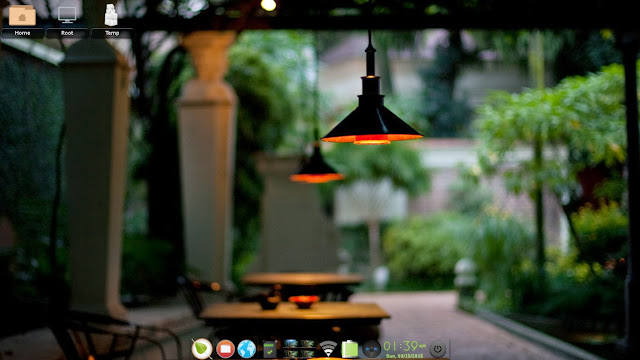On 17th Feb, 2015 Jeff Hoogland has announced the final release of Bodhi
Linux 3.0.0, a desktop distribution based on Ubuntu 14.04 and featuring
a customised Enlightenment 19.3 desktop: "Today I am very happy to
share with you the first stable release for the third major update to
the Bodhi Linux operating system. Notable features in the 3.0.0 release:
Enlightenment E19.3, Terminology 0.8.0, ePad 0.9.0, Numix icons, Linux
kernel 3.16, Ubuntu 14.04 LTS core. The release images for 3.0.0 support
a wide range of hardware including: non-PAE processors, UEFI BIOS,
SeaBIOS Chromebooks. Our stable release is not the only thing that is
new at Bodhi Linux this month. Our main website, AppCenter, Wiki, and
Forums have all gotten complete overhauls to go alongside this new
release. If you are new to Bodhi Linux please take a look at the Quick
Start Guide that opens by default when you first boot the live CD /
operating system."
I have used Bodhi 2.x quite extensively on a couple of low powered
machines I have. I liked the attractive interface of Bodhi and it's
simplistic design. Bodhi 2.x was based on Ubuntu 12.04 LTS and the
present release is based on Ubuntu 14.04. Unlike Ubuntu Trusty, which is
still running Linux kernel 3.13.0 series, Bodhi ships with kernel
3.16.0.
Bodhi Linux provides options to download 32-bit, 64-bit, legacy and Chromebook version. I chose 64-bit ISO, about 612 MB in size. I created a live USB using Linux Mint Image Writer on a 4 GB USB drive. First I did a live boot on my laptop and then installed it to a 100 GB drive to understand Bodhi's performance better.
 |
Bodhi Linux provides options to download 32-bit, 64-bit, legacy and Chromebook version. I chose 64-bit ISO, about 612 MB in size. I created a live USB using Linux Mint Image Writer on a 4 GB USB drive. First I did a live boot on my laptop and then installed it to a 100 GB drive to understand Bodhi's performance better.
No comments:
Post a Comment